Berkeley California in May of 1969 was the hip place to be. Antiwar sentiment against the Vietnam war was at full rage, and California - Berkeley in particular - was a hotbed of edgy politics and art. The Free Speech Movement a few years earlier was birthed on the University of California’s Berkeley campus when students pushed the boundaries of university rules with civil rights discourse.
Then in 1969, a plot of land owned by the university was taken over by activists who wanted a place to organize and where free speech was the norm. Students took the plot, planting trees, shrubs, flowers and sod, creating a People’s Park. Tensions escalated and at a standoff with police on May 15, 1969, one student, James Rector, was killed and over a hundred people wounded in the confrontation. That evening, then-governor of California Ronald Reagan ordered 2700 National Guard troops in where they remained for weeks.
It was at People’s Park that a young woman attending college nearby found herself. She recalls procuring metal garbage cans at a local hardware store for cooking large quantities of soup for the masses. One person, on observing the simmering soup in a garbage can remarked, ‘I’m not eating out of that,’ to which the young woman replied, ‘Guess you’re not hungry then.’
Fifty-five years later, that soup-maker continues to stand for freedom from tyranny. This past March 4, she blocked a Mountain Valley Pipeline access road by locking to a vehicle with another elder resister for 11 hours.
Still fiercely determined and resilient at age 81, River released herself only after her blood pressure spiked dangerously high and remained high. She calculates she cut about 30 minutes from the time it would have taken law enforcement to complete her extraction. Her action re-energized and changed her, exemplifying an adage she feels is apt, ‘Action is antidote to anxiety.’ River reminisces her favorite chant from that day: ‘From the hollers to the hills, from the river to the sea, children of the world shall be safe and free.’
Although she’d never been to Appalachia, she has always felt an affinity for the area. She muses it could be her Scottish heritage or love of mountains, which she was surprised to find truly are blue, although ‘all mountains are individual.’ The expanses of flat land between mountain ranges and how quickly the landscape changes were also surprising to her. River had seen videos of walk-ons and resistance actions against the Mountain Valley Pipeline, and there was a quality in the demeanor of the actions that appealed to her.
River had long enjoyed a very physical existence, but her life had become sedentary. Last summer was the first one she hadn’t spent full days gardening, and she could no longer chop and haul firewood. At age 81, she felt she’d ‘lost purpose in everyday being.’ A regular volunteer at both her local library and food bank, she felt a calling and headed south from her Vermont home.
‘We’re in an emergency and I have to give it my all,’ River assessed, and felt her role at the action was easy, just talking to people. In Vermont, repercussions from a pipeline blockade would amount to a slap on a wrist. But Virginia was another matter. Locked to the vehicle blocking the access road, River recalls feeling a little claustrophobic and uncomfortable, but until her blood pressure began spiking, she found it quite tolerable. After her extraction, she received a citation, and was released for a later arraignment. Asked about the possibility of being included in SLAPP suits (repressive ‘strategic lawsuits against public participation’) as about 40 others thus far have been, she remained undaunted.
An activist most of her life, River is acutely aware of much that needs protecting: She sees biomass plants popping up in Vermont, logging in the state’s national and state forests under the guise of ‘forest management’ for biomass and lumber, a result of strong industry lobbies. She mentions multiple weapons plants in Vermont - Collins (formerly Raytheon) and General Dynamics - also Elbit weapons manufacturers in New Hampshire that profit from violence and also inflict enormous harms from their manufacture and use. (The deleterious effects from a munitions arsenal near the MVP route has caused terrible harms to the community and environment.)
River has witnessed Vermont’s changing climate over last few years, and sees that age-old wisdom no longer applies. ‘Farmers don’t know what to do.’ Sufficient water is a grave concern. She cited the anticipated 100% rise in population for the one-day totality event as an immense drain on scant resources.
River came south to lend herself to the MVP struggle, but she also sees the pipeline fight connecting to overarching issues. ‘We’re not just environmentalists; there’s so much more to tackle in the world.’
Recalling the Addison County pipeline fight in Vermont, completed in 2017, but reduced in total length from 3 phases to one, due to the public outcry and nonviolent resistance, River saw industry’s ‘absolute disregard for people’s lives, and use of eminent domain.’ Of the resistance group No Coal No Gas’s recent victory that resulted in the planned shutdown of New England’s last remaining coal plant, she says that those victories ‘are so few and far between. We gotta grab that.’ Her activist sensibility and energy are still fully intact.
River mentions Joanna Macy as an influence, and shares Macy’s positivism. There’s no reason not to continue to effect the changes we want to see, and embody the better world we know is possible.
In the long history of MVP resistance, elders have populated numerous blockades, occupying tree sits, attaching to drills, and blocking roads and work sites in creative and colorful ways. Some have received misdemeanor charges, some have been sued in civil court for the cost of their extraction, and some are included in the wide net of current SLAPP suits in both Virginia and West Virginia. One elder, Jerome, was recently released after serving a 2-month jail sentence in West Virginia. Elders aren’t immune from injury or prosecution, but lend a different gravitas to what resistance looks like, and attract media coverage because of their presence. With no likely future employment applications to fill out, and typically less-full calendars than younger people busy with jobs and families, elders are critical to resistance movements.
Please donate to the legal defense fund for pipeline fighters: bit.ly/AppLegalDefense. Protectors face ever-increasing and expensive intimidation tactics and legal charges, but remain undaunted.
Please support these worthy on-the-ground groups fighting the disaster spelled MVP:
https://www.aapsolidarity.org/
https://powhr.org/
https://7directionsofservice.com/




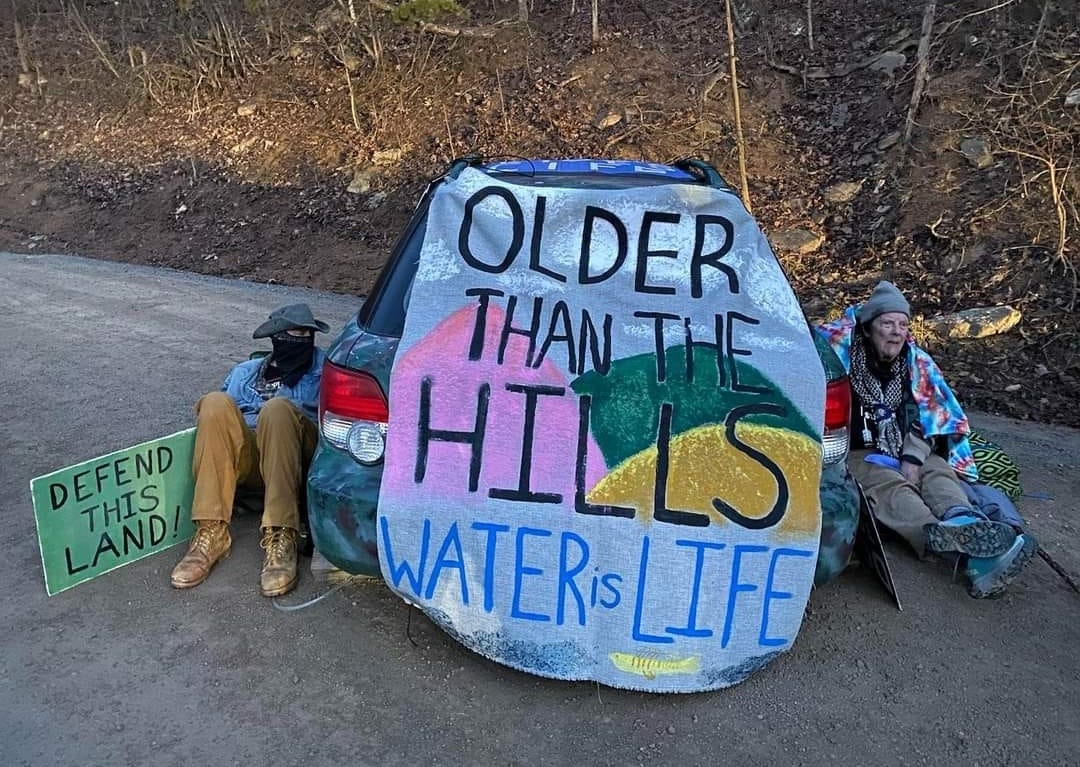
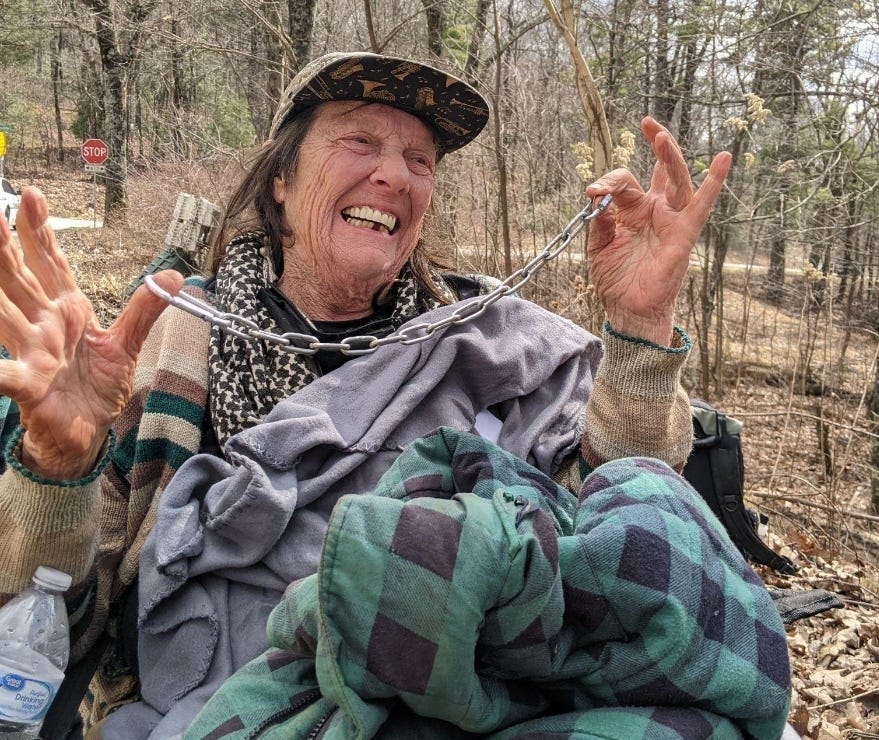
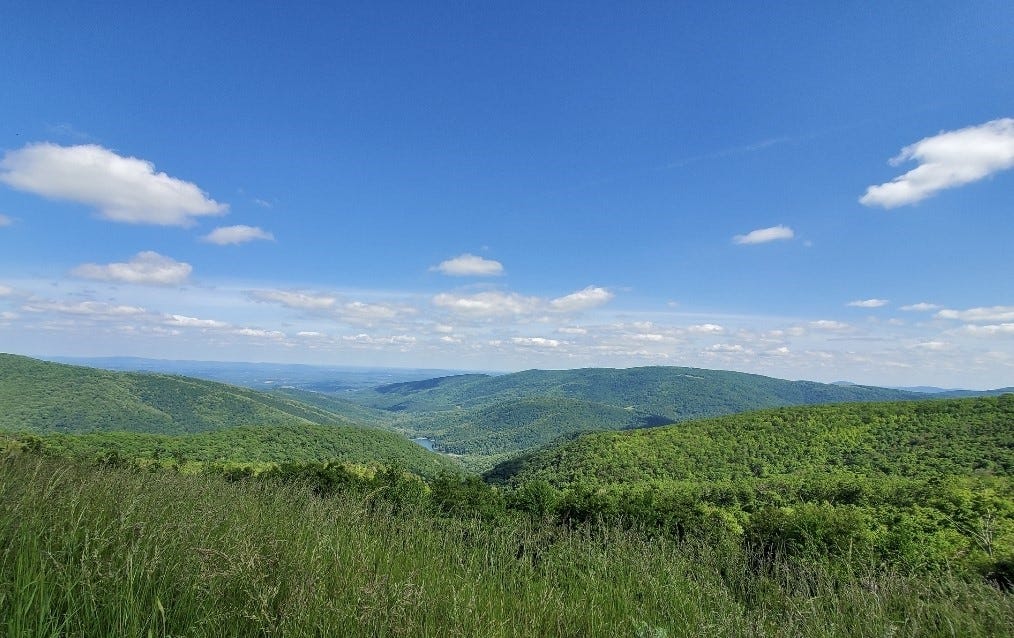
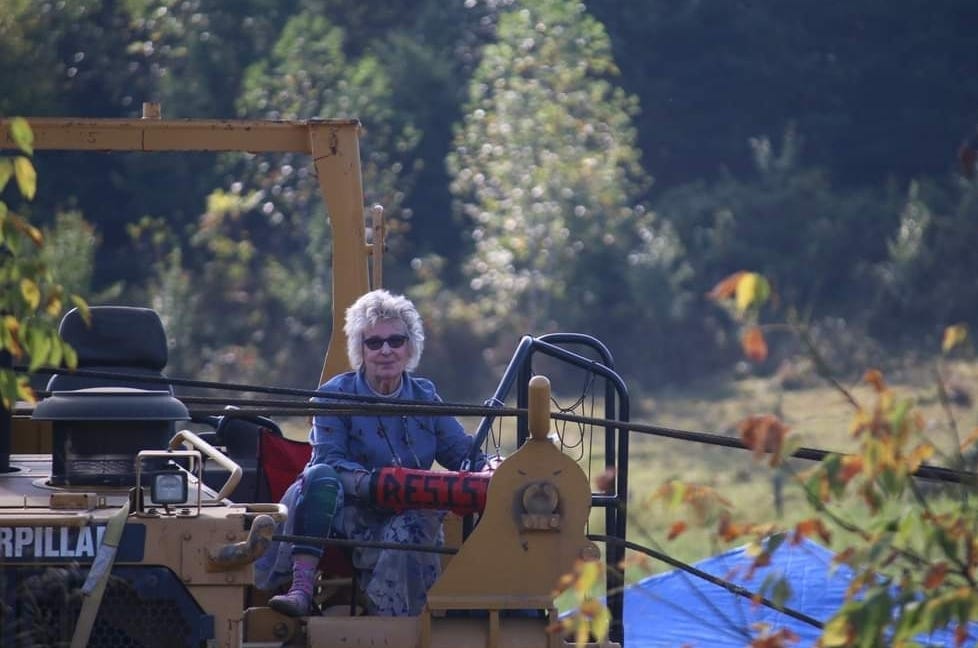

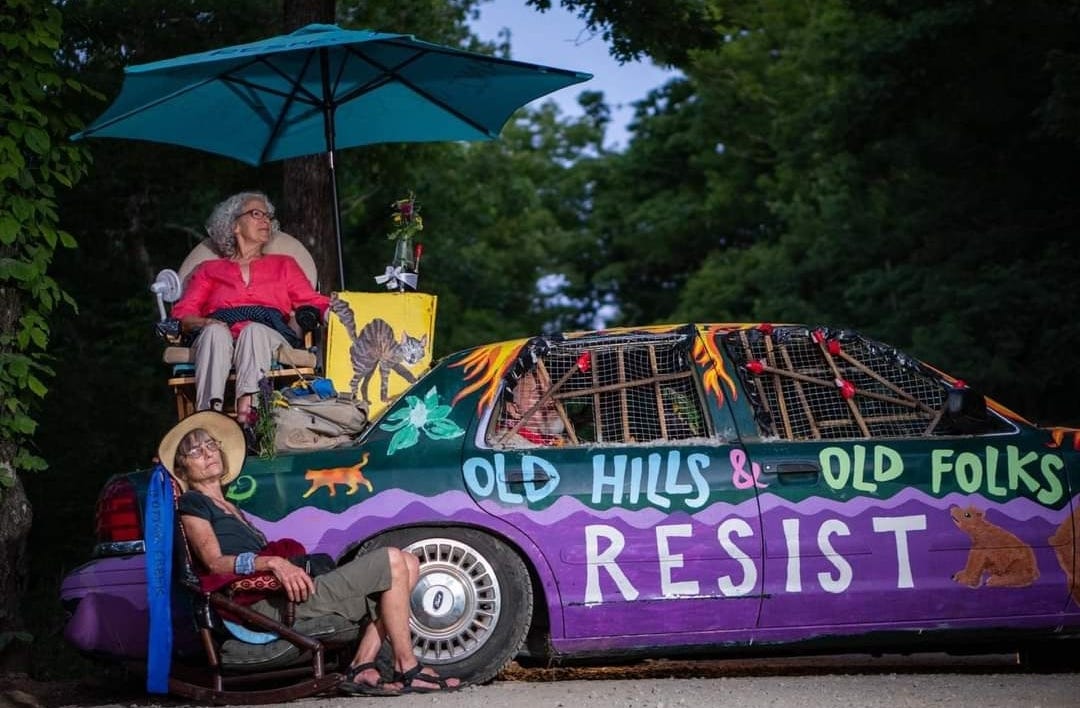
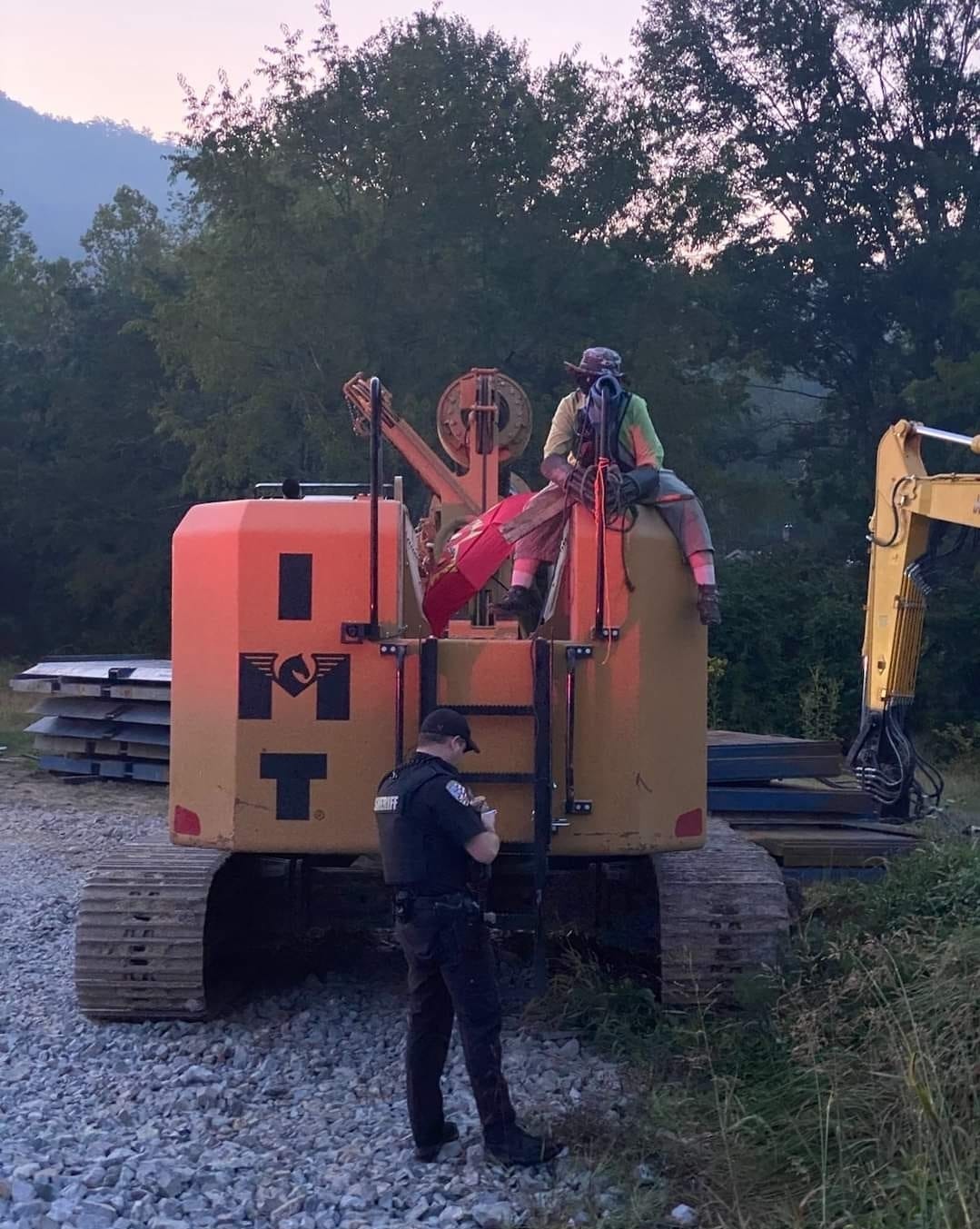
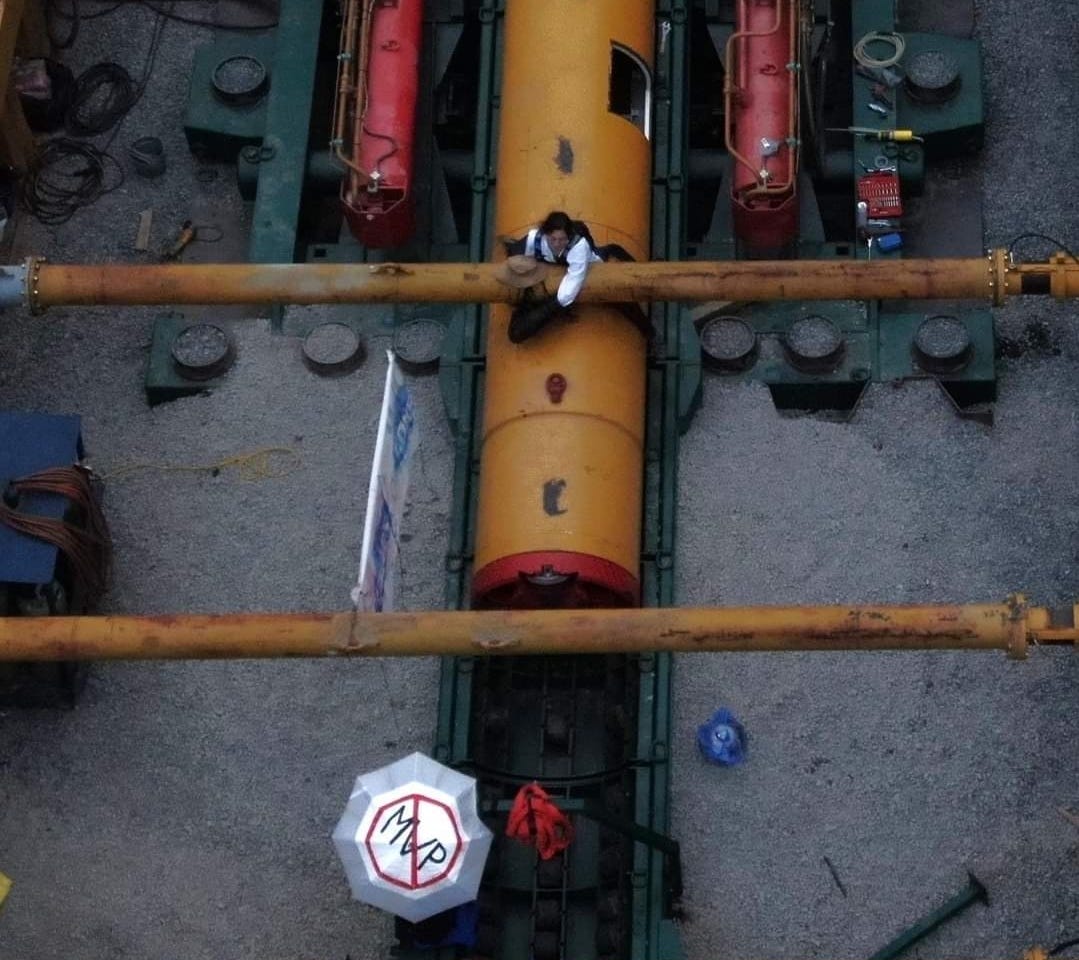
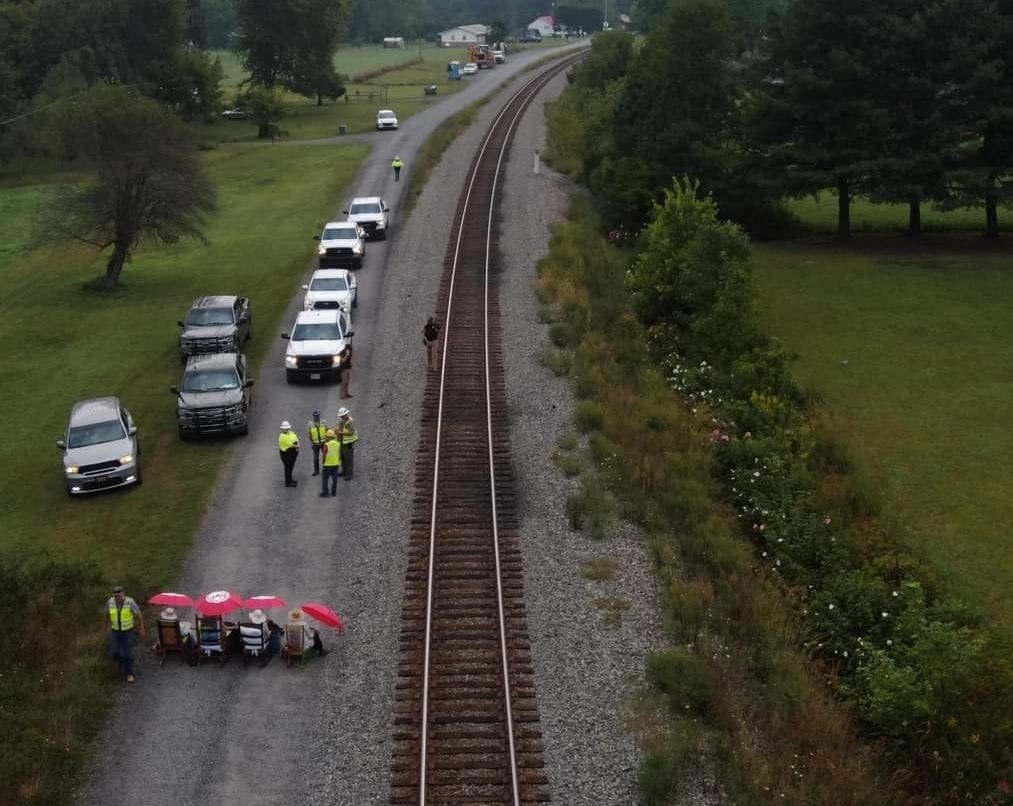

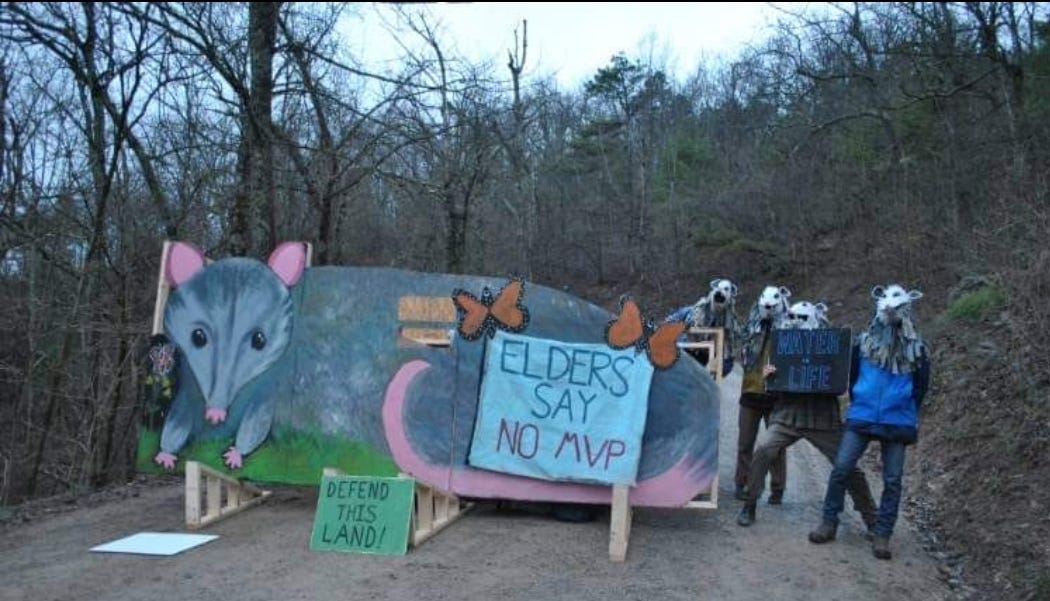
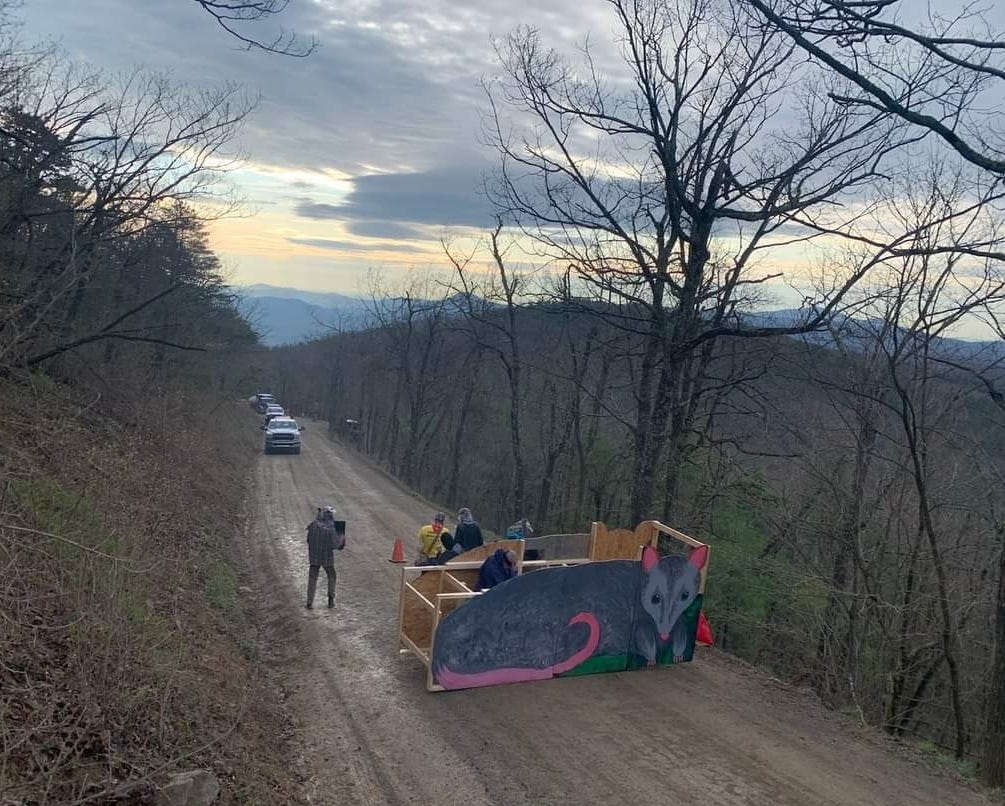
Wonderful to see how this crime scene is drawing people from across the US. And what a great example Rivers and the other elders are for the more timid among us. Thank you for sharing this.